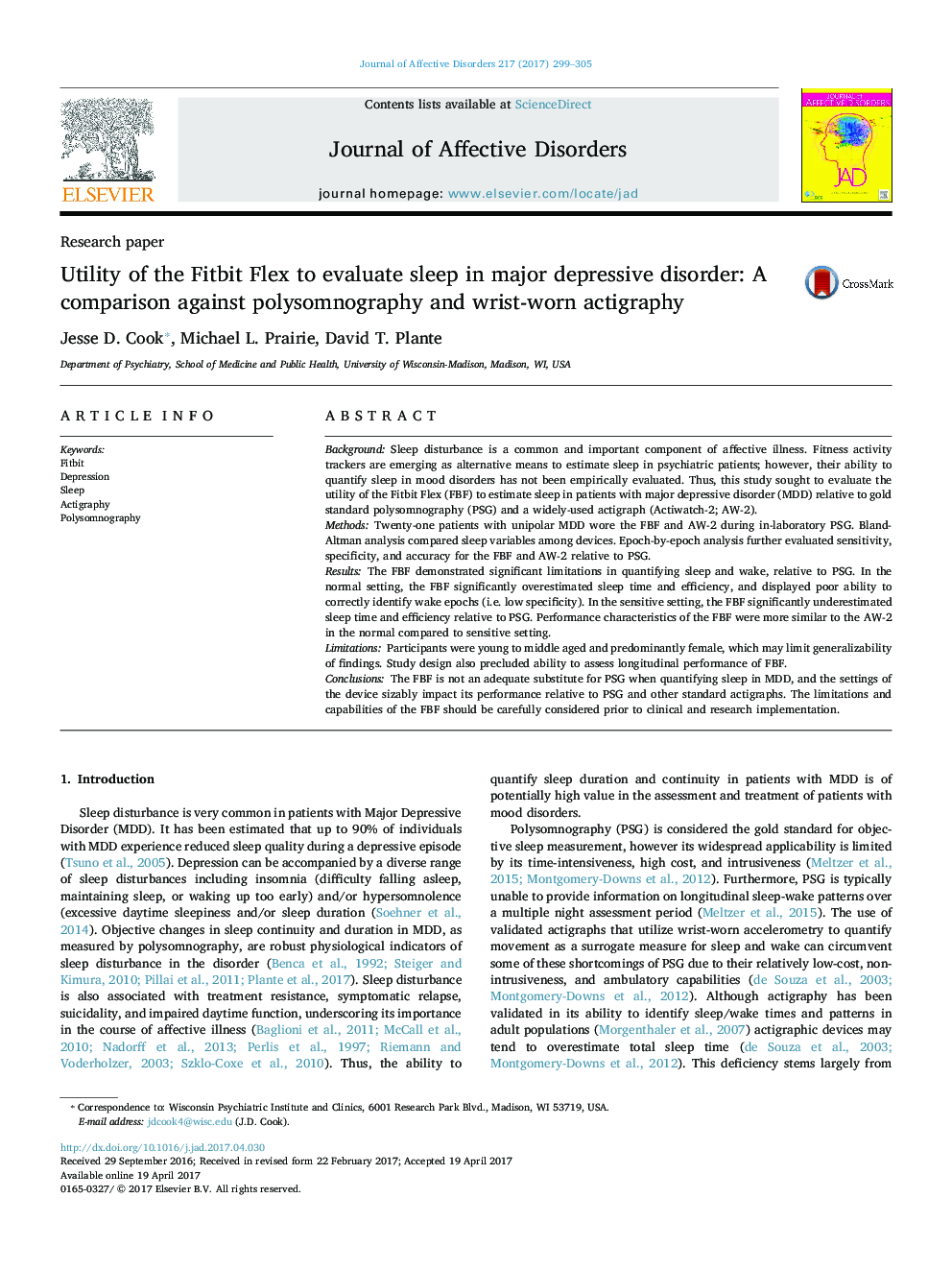| کد مقاله | کد نشریه | سال انتشار | مقاله انگلیسی | نسخه تمام متن |
|---|---|---|---|---|
| 5722215 | 1608108 | 2017 | 7 صفحه PDF | دانلود رایگان |

- Activity monitors may prove useful as a sleep measurement tool in mood disorders.
- The Fitbit Flex estimates sleep duration comparably to actigraphy in depression.
- Fitbit Flex settings dramatically alter estimates of sleep continuity and duration.
BackgroundSleep disturbance is a common and important component of affective illness. Fitness activity trackers are emerging as alternative means to estimate sleep in psychiatric patients; however, their ability to quantify sleep in mood disorders has not been empirically evaluated. Thus, this study sought to evaluate the utility of the Fitbit Flex (FBF) to estimate sleep in patients with major depressive disorder (MDD) relative to gold standard polysomnography (PSG) and a widely-used actigraph (Actiwatch-2; AW-2).MethodsTwenty-one patients with unipolar MDD wore the FBF and AW-2 during in-laboratory PSG. Bland-Altman analysis compared sleep variables among devices. Epoch-by-epoch analysis further evaluated sensitivity, specificity, and accuracy for the FBF and AW-2 relative to PSG.ResultsThe FBF demonstrated significant limitations in quantifying sleep and wake, relative to PSG. In the normal setting, the FBF significantly overestimated sleep time and efficiency, and displayed poor ability to correctly identify wake epochs (i.e. low specificity). In the sensitive setting, the FBF significantly underestimated sleep time and efficiency relative to PSG. Performance characteristics of the FBF were more similar to the AW-2 in the normal compared to sensitive setting.LimitationsParticipants were young to middle aged and predominantly female, which may limit generalizability of findings. Study design also precluded ability to assess longitudinal performance of FBF.ConclusionsThe FBF is not an adequate substitute for PSG when quantifying sleep in MDD, and the settings of the device sizably impact its performance relative to PSG and other standard actigraphs. The limitations and capabilities of the FBF should be carefully considered prior to clinical and research implementation.
Journal: Journal of Affective Disorders - Volume 217, 1 August 2017, Pages 299-305